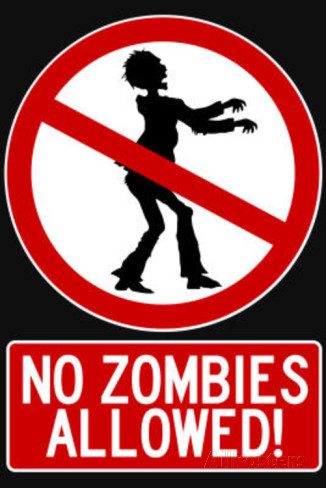 One of the major hurdles I encountered when shopping my first novel “The Resurrection,” had to do with two factors: 1.) It was aimed at a Christian audience, and 2.) The story contained a ghost.
One of the major hurdles I encountered when shopping my first novel “The Resurrection,” had to do with two factors: 1.) It was aimed at a Christian audience, and 2.) The story contained a ghost.
And Christian fiction doesn’t do ghosts.
The eventual publisher accepted the book on the basis that the ghost was peripheral, a MacGuffin (or so they believed). Nevertheless, they asked me to write an Afterword clarifying the inclusion of a ghost in Christian fiction. (You can find a summary of that Afterword in this post Another Perspective on Ghosts.)
I’ve since learned that my feelings about Christian stories containing ghosts, are no different than my feelings about Christian stories containing vampires, werewolves, leprechauns, and mermaids.
Everything’s fair game.
This puts me at odds with mainstream Christian writers and readers who consider certain fictional archetypes off-limits.
I recently learned of another fictional archetype that is, apparently, off-limits for mainstream Christian fiction — zombies.
In his recent post How Then Can It Be ‘Christian’? novelist James Somers states what has become the rubric, the defining principle, for what guides many Christian authors and readers:
…while we do have freedom to explore many avenues, we should never find ourselves compromising God’s Word or his person…
Likewise, we should never present a view of the world that contradicts God’s Word. (emphasis mine)
Of course, this is fairly open-ended. I happen to think Harry Potter, Stephen King’s The Stand, Dean Koontz’ Odd Thomas, and Flannery O’Connor’s A Good Man is Hard to Find all meet these specifications. However, the devil’s in the details. Because something can be found in each of these tales that potentially “compromises God’s Word” to someone, in some fashion.
And that’s the rub with this approach. Forcing fiction to neatly fit your theology is a losing proposition… at least, if creative storytelling is your aim.
Case in point is the conclusion Somer’s draws based on his prescription:
I’m currently working on a new novel series that would seem like a zombie plague has broken out and threatens the world. Are zombies–the living dead–real beings? Could they actually exist? Of course they couldn’t. Dead is dead. Muscles don’t work without blood flow and a heart to pump it and lungs to oxygenate it. So, I can’t do living dead, but I can explore a story about infected individuals who are living and what such a pestilence or plague could do. (emphasis mine)
So “while we do have freedom to explore many avenues… we should never present a view of the world that contradicts God’s Word.” And since the dead can’t reanimate, the Christian author “can’t do living dead.”
Interestingly, the author gives himself a bit of wiggle room in describing his new novel by employing a plague “that would SEEM like a zombie plague.” Thus, the only way for a Christian writer to employ zombies without presenting “a view of the world that contradicts God’s Word,” is to create a plague that doesn’t reanimate the dead but zombifies the living.
Problem solved.
I have long argued that one of the inherent problems with Christian speculative fiction is that Christian spec-fic, by its very nature, cannot be speculative enough. We impose overly strict theological expectations on our fiction. Our fiction needs fit snugly within a biblical worldview, however we interpret that view. Thus, basic fictional archetypes like ghosts, vampires, dragons, zombies, werethings, space aliens, mermaids, shapeshifters, and shades can all pose tremendous problems for the Christian author. Why? Because they potentially “present a view of the world that contradicts God’s Word.” (This is also one of the reasons Why Christian Fiction Writers Love the Nephilim and why Christian spec author write so much epic fantasy — Fantasy fiction is our buffer against theological scrutiny.) So in “real world” settings, some characters or archetypes become totally off-limits for Christian authors.
Like zombies.
Unless they just SEEM like zombies.
But if zombies are simply fictional constructs, why can’t they be just what they are: the living dead?














Oh that’s it the mainstream evangelical community is going to give me a lot of shit for writing a meta-fictional Gothic Horror tale which combines elements of Wes Craven’s New Nightmare and the doppelganger motif referencing my creative nonfiction output and a cult horror story from 2003. Those of you who are Independent Baptists you’re hiding your damned monsters behind the pulpit as you have one of your preachers engaging on Craigslist with Fido.